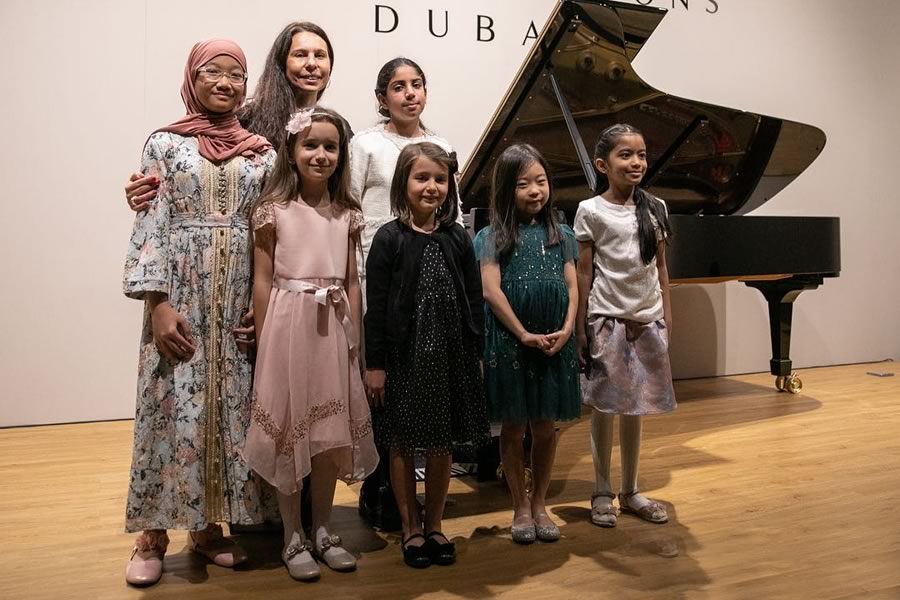Research has shown that learning music in early age has a multitude of benefits that extend far beyond the realm of melody and rhythm. Music is a universal language that resonates with people of all ages and backgrounds. However, its impact is particularly profound when it becomes part of a child’s early development. Engaging in musical activities from a young age can significantly contribute to a child’s growth and development.
The Universal Language of Music
Music is a language that transcends cultural and linguistic barriers. It communicates emotions, stories, and ideas in a way that words alone cannot. By learning to create music, individuals gain a unique mode of self-expression and the ability to connect with others on a deep and emotional level. Music fosters a sense of unity, enabling people from diverse backgrounds to come together and appreciate the beauty of harmony, melody, and rhythm.
Cognitive Benefits of Learning Music
Enhanced Brain Development: Learning to play an instrument, such as the piano, stimulates various regions of the brain, enhancing cognitive development. It sharpens memory, improves problem-solving skills, and increases overall brain efficiency. Musicians tend to have better academic performance and higher IQ levels.
Music encourages creativity and innovation. Composing their melodies or interpreting musical pieces allows children to think creatively and develop problem-solving skills. These skills can extend beyond music and be applied to academic and real-world situations.
Better Focus and Concentration
Music demands a high degree of concentration and attention to detail. Practicing regularly hones a child’s ability to focus, which can be beneficial in school and other activities.
Cultural and Global Awareness
Music is a rich tapestry of cultures and traditions from around the world. Exposure to music from different cultures can expand a child’s understanding and appreciation of global diversity. This early exposure can nurture a sense of cultural awareness and respect for different traditions.
Stress Reduction
The soothing and therapeutic qualities of music have a calming effect on children. Engaging with music can help reduce stress and anxiety, allowing young minds to better cope with the challenges they encounter in daily life.
Emotional and Social Development
Music is not just about notes and scales; it’s also about emotional expression and social interaction. Here’s how learning music in early age can foster emotional and social growth:
- Emotional Expression
- Empathy and Communication
- Self-Confidence
How to Introduce Music to Young Children
If you’re interested in incorporating music into your child’s early years, here are some practical steps to consider:
Musical Play: Start with musical toys and games that introduce basic concepts like rhythm, melody, and tempo. Singing simple songs together can also be a delightful way to introduce music.
Music Classes: Enroll your child in age-appropriate music classes. Many communities offer music programs for toddlers and young children, where they can explore various instruments and learn through play. You can start with piano classes in Dubai, if you live in UAE.
Musical Instruments: Introduce your child to instruments suitable for their age, such as small percussion instruments, toy keyboards, or child-sized string instruments. Encourage them to experiment and create their music. Piano is one of the most saught after musical instrument.
Expose Them to a Variety of Music: Play a diverse range of music at home to expose your child to different styles, genres, and cultures. This broadens their musical horizons and fosters an appreciation for diversity.
Encourage Active Participation: Encourage your child to actively participate in music by singing, clapping, and dancing to the rhythm. Create a musical environment that is both engaging and fun.
Conclusion
The benefits of learning music in early age are profound and far-reaching, encompassing cognitive, emotional, social, and physical development. Early exposure to music not only stimulates young minds but also provides them with a lifelong appreciation for the art form.Elite Music Institute in Dubai offers various age appropriate piano lessons in Dubai.

